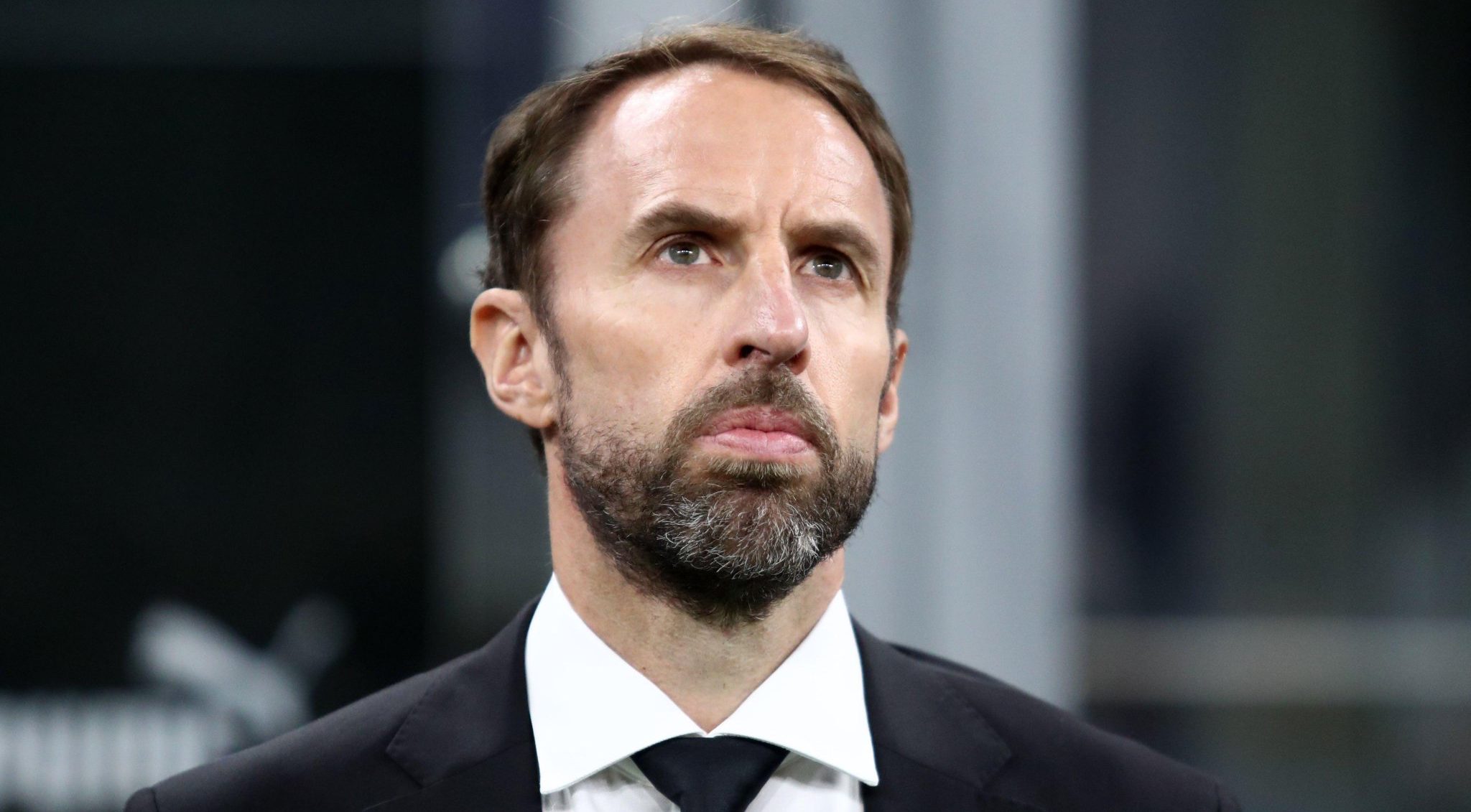The amir recently slammed what he described as “ferocious” attacks against Qatar since it won the bid to host the World Cup, saying “no other host nation” has faced this level of criticism.
Workers in Qatar are “unified” in wanting the World Cup to be hosted in Qatar, England’s manager said, triggering criticism from rights groups at home.
In an interview with CNN, Southgate recognised that there were still problems with Qatar, but insisted that there was no doubt the World Cup should go on as scheduled.
“I’ve been out to Qatar several times and I’ve met lots of the workers out there and they are united in certainly one thing, that’s that they want the tournament to happen, and they want that because they love football,” he said.
“They want the football to come to Qatar.”
The comments come as the countdown for the World Cup accelerates and scrutiny targeting Qatar continues to exacerbate in the lead up.
However, Amnesty International warned that the majority of workers are more concerned with having their rights upheld and getting paid “properly” than standing with the World Cup, reports said.
Also offering a counterpoint, Human Rights Watch’s Minky Worden, the director of global programmes, argued that such a perspective was unwarranted.
“First, migrant workers in Qatar cannot speak freely because of security concerns, and the FA should know this,” Worden told the Guardian.
While Southgate is not at risk when speaking to migrant workers, Worden claimed, the latter are at risk when speaking to him, including the possibility of losing their jobs and being deported.
“There are many migrant workers who are proud of the work they have done to build the World Cup in Qatar, but there are also many who have suffered preventable deaths and harms and until the deaths, loans, injuries and wage theft are compensated, it is not correct to say all migrant workers are ‘united’,” Worden added.
‘Misleading’
A report published by the Guardian in February 2021 was criticised for its misleading headline that blamed deaths among Qatar’s South Asian community on the country’s preparations for the World Cup tournament this year.
The British publication’s article, headlined, “Revealed: 6,500 migrant workers have died in Qatar as it gears up for World Cup” purports to link the “shocking” death rate to the start of the 2022 FIFA World Cup journey more than a decade ago, failing to provide a clarification of the reasons behind the deaths.
Failing to cite official medical records to explain the circumstances of the deaths, the Guardian persisted to quote a labour rights expert in the Gulf who claimed it is “likely” that many workers who died were employed on these World Cup infrastructure projects.
However, Qatari authorities have slammed this as baseless.
Speaking to Doha News at the time, experts said the “deceptive” reporting is part of major Western media propaganda against Qatar.
More recently, Qatar’s Amir Sheikh Tamim bin Hamad Al Thani slammed what he described as “ferocious” attacks against Qatar since it won the bid to host the World Cup.
The amir said that “no other host nation” has faced this level of “ferocious” criticism.
Since being awarded the position to host the World Cup, Doha has taken lead in implementing changes and introducing reforms, some of which include being the first to abolish the Kafala system in the region and the first in the Gulf to adopt the non-discriminatory minimum wage reform for all nationalities.
Improvements in Qatar
Qatar’s major reforms in labour laws since 2010 has been carried out in over a span of just few years, has been highlighted by many authorities, including FIFA’s very own president Gianni Infantino, saying that it took Europe hundreds of years.
Other experts have argued that Qatar has made more human rights reforms in recent years than any other mega-event host.
Meanwhile, a fresh report issued by the ILO on Monday said thousands of workers have already experienced an improvement in their living and working conditions as a result of the recent reforms Qatar has implemented.
However, the report, detailing the results of the Technical Cooperation Programme between Doha and the ILO since its launch in April 2018, said more work must yet be done to guarantee that all workers gain from them.
Meanwhile, Southgate emphasised in his interview that the Football Association has been collaborating with human rights organisations to support their efforts to seek ‘restitution’ before the competition begins on 20 November.
Ella Knight, Amnesty International’s migrants’ labour rights researcher, said far more needed to be done by FIFA and football as a whole, according to reports.
“Many workers in Qatar will of course be football fans, but what migrant workers have really stressed to us is the need to have their rights fully protected, to be paid properly, able to change jobs freely and to enjoy safe and dignified working conditions – before, during and after this tournament,” she said.
“The World Cup is about to take place with vital labour reforms still very much unfinished business, and thousands of workers’ abuses remaining unaddressed.
“The opening game is now less than three weeks away and FIFA is yet to commit to remedying workers and their families for the abuses they’ve suffered despite widespread support from the public, FAs, players and World Cup sponsors. We urge the FA to maintain its pressure on FIFA, pushing it to recognise and urgently address the suffering of workers without whom the World Cup simply wouldn’t be possible.”
The #PayUpFIFA campaign is a collective appeal by human rights groups for FIFA to match the tournament’s $440 million in prize money with compensation for migrant workers.
FIFA stated at the time that it was evaluating the campaign, and that as of December 2021, workers had received compensation payments totalling $22.6 million, with an additional $5.7 million pledged by contractors.







